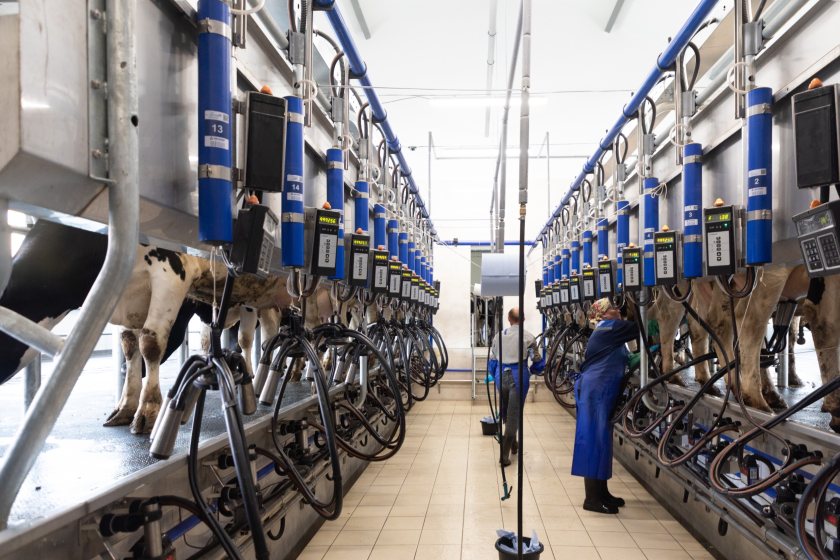
Britain’s food security is at risk unless urgent action is taken to fix crippling labour shortages in farming, Arla, the UK’s largest dairy company, has warned.
The call follows the publication of the co-op's annual on-farm workforce survey, now in its fifth year, which reveals that recruiting and retaining skilled staff remains as challenging as it was in 2020.
The survey of Arla’s 1,900 British farmers shows that around five in every six who tried to fill vacancies received very few qualified applicants – or none at all. This figure has risen to around 84% in 2024, up from 79% in 2021.
The shortage of skilled workers is already impacting production. Six per cent of farmers surveyed have cut output, while 13% say they will leave farming within the next year if conditions do not improve.
The research also highlights an ageing workforce and the difficulty of attracting new talent into agriculture. More than 47% of farmers are aged 55 or older, while just 3% are first-generation farmers.
Over two-thirds of farms have remained in the same families for at least four generations, underlining the sector’s reliance on succession rather than new entrants.
Bas Padberg, managing director of Arla Foods UK, warned that the shortage of skilled workers is already having tangible effects on British farming, driving up costs and reducing milk production.
“What we’re seeing, is the real impact of these workforce shortages on our farming industry, whether that’s in higher costs or lower milk production.
"The effect of this is ultimately going to be seen in the price and availability of products on the supermarket shelves, affecting the millions of people that rely on dairy as a source of nutrition in their diet," he said.
Mr Padberg acknowledged that the government has recognised the issue and welcomed its focus on talent and training within the forthcoming food strategy. However, he stressed that more decisive action is needed.
"But we need to act quickly, and we need practical steps that the industry, the education sector and government can take together to support more opportunities for inclusion and growth.”
Arla is also calling for changes to apprenticeships and training programmes across the food supply chain and wants to tackle misconceptions about farming that discourage people from considering agriculture as a career.
The company is already taking steps to address the issue, running four apprenticeship schemes and offering industrial placements across farming and supply chain roles.
It also recently launched a bespoke apprenticeship at its Taw Valley site to support innovation and technology in its new mozzarella facility.
Heather Davies, a farmer which supplies the co-op, said: “Recruiting for farming roles remains a significant challenge, with over 90% of applicants coming to us on our farm without any previous experience in agriculture.
“There is a clear disconnect between the education system and pathways into agriculture, and perhaps an even wider gap between people and the origins of their food.
"Despite the incredible variety and fulfilment that a career in farming offers, we struggle to attract people to the industry.
"This is an industry that will always need skilled people, and we must do more to communicate the value and potential of a career in agriculture."
